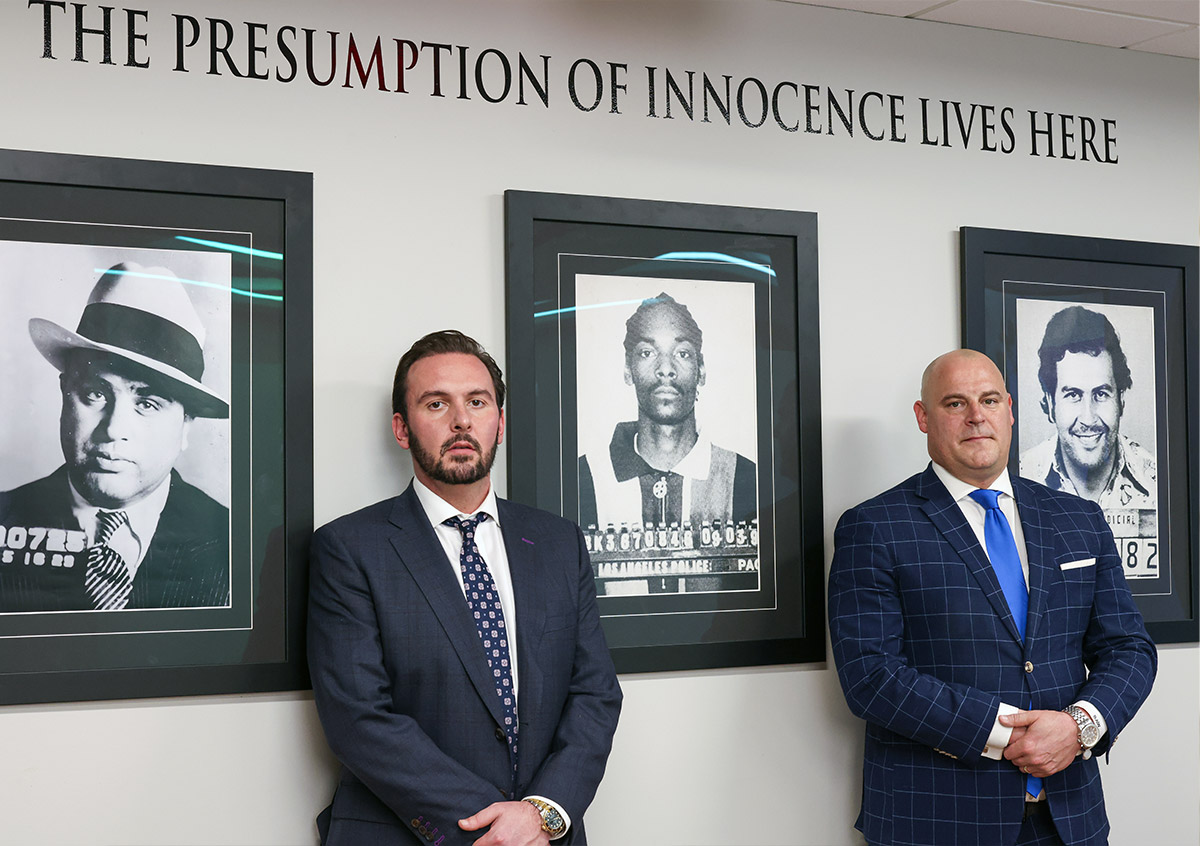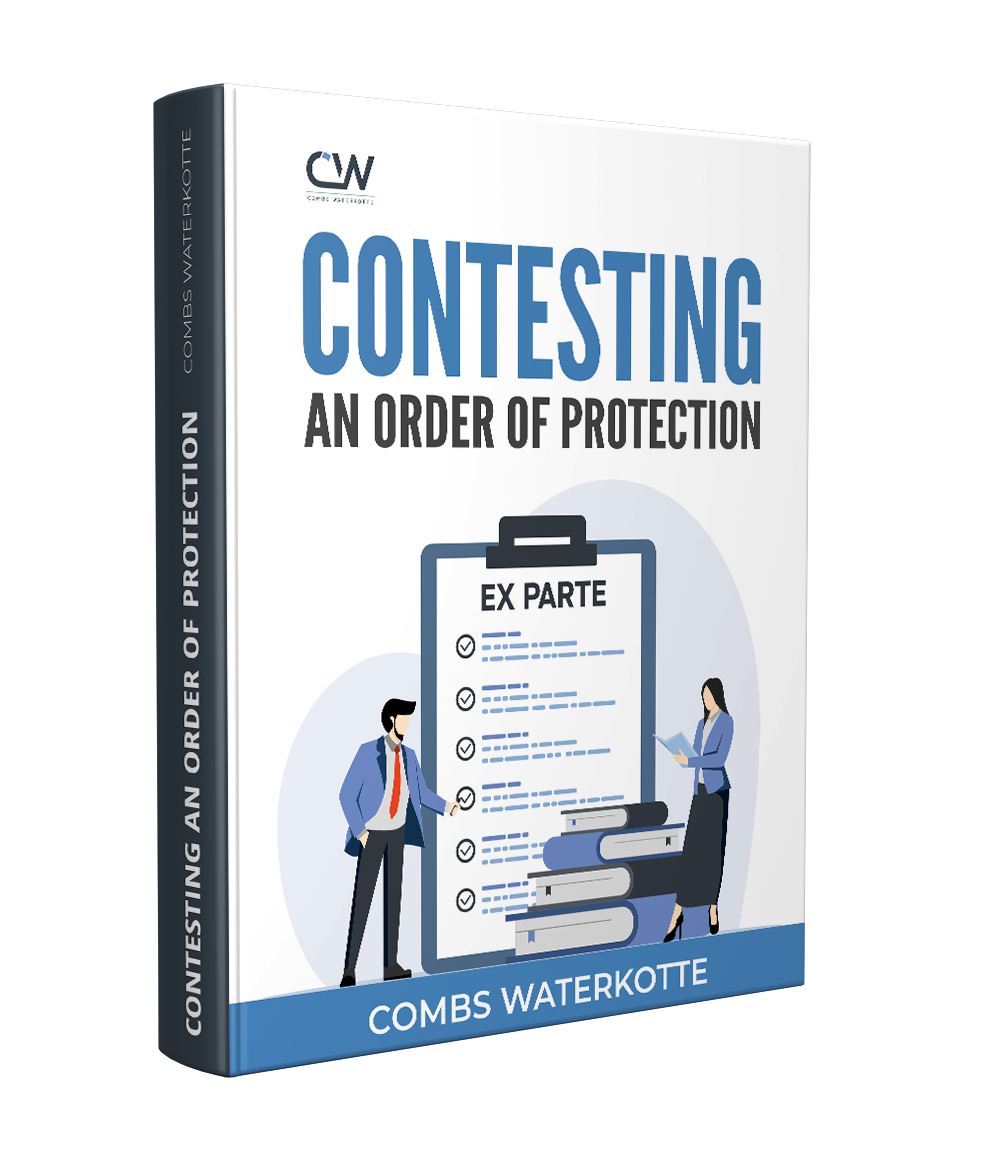
Federal Conspiracy to Distribute Controlled Substances Lawyer in Missouri
Federal laws give the government the power to pursue conspiracy charges against anyone involved in drug distribution, even if your role was minor. If you’re facing federal conspiracy to distribute controlled substances charges, you need the experienced attorneys of Combs Waterkotte on your side. With decades of experience and extensive resources at our disposal, we can help you effectively fight for your future.
Facing federal conspiracy to distribute controlled substances charges in Missouri? You need experience on your side. Contact Combs Waterkotte or call (314) 900-HELP right now for a free, confidential consultation.

How Is Federal Conspiracy Charged in Missouri?
Inchoate crimes, such as attempt or conspiracy, are unique in a few ways. First, these crimes depend on an underlying offense. In other words, there is no crime simply called “attempt” or “conspiracy.” Instead, prosecutors must show that you attempted or conspired to commit a particular offense, such as attempted murder or conspiracy to commit kidnapping.
Second, perpetrators of inchoate crimes can face punishment even though prosecutors cannot prove every element of the crime. Inchoate crimes typically only require proof of an intent to commit the offense plus an act in furtherance of the crime.
By requiring an act in furtherance of the crime, the law prevents prosecutors from obtaining convictions of people who merely considered or discussed committing a crime. Instead, the law requires that the accused act on their criminal impulse, even if they were ultimately unsuccessful.
Finally, you can commit inchoate crimes even if the step you took was not an element of the underlying crime. For example, you might face charges for conspiracy to traffic prescription drugs by performing an otherwise legal act, such as renting a warehouse, when you knew that your act would help someone illegally store, package, or distribute prescription drugs.

Key Federal Conspiracy to Distribute Controlled Substances Statutes
The U.S. Code includes a law specifically designed to prosecute people who attempt or conspire to commit drug offenses. Rather than directly defining attempt or conspiracy, though, it depends on the commonly accepted legal principles to establish whether the accused attempted, conspired, or conspired to attempt to commit a drug crime.
In a separate statute, the Code defines some of these drug crimes. Federal drug laws prohibit the following acts involving controlled substances:
- Manufacturing
- Distributing
- Dispensing
- Possessing with the intent to manufacture, distribute, or dispense
These laws define distributing as the actual or constructive transfer of an illegal or prescription drug. However, it does not include the administration or prescription of drugs. Thus, pharmacists, doctors, and nurses do not distribute drugs. Instead, their activities fall under “dispensing.”
Actual transfer occurs when someone physically transfers possession of drugs. Thus, delivering them qualifies as an actual transfer. Constructive transfer occurs when you transfer ownership of drugs. This means receiving a shipping container in your name at a port and signing it over to someone else so that they can pick it up could qualify as a constructive transfer.
Federal Conspiracy Principles
Since the federal conspiracy statute does not define the elements of a conspiracy, you generally must rely on federal case law to identify what prosecutors must prove in your case. Under federal law, conspiracies have four elements, including:
- Two or more parties
- Agreement to achieve a prohibited goal or commit a prohibited act
- Knowledge of the agreement’s purpose
- At least one overt act to further the conspiracy
The prosecution must prove each of these elements beyond a reasonable doubt. In other words, prosecutors must have evidence showing each of these elements as they apply to an act prohibited in the drug distribution statute.
For example, the government can prosecute you if it has evidence that you agreed to accept a package containing methamphetamine from an importer and transfer it to a distributor. In this case, you knew what was in the package and were arrested when you arrived to pick it up from the importer.
This scenario meets all four elements for a conspiracy, even though you never touched the drugs and were not involved in the importing or distributing to the dealers or users. Simply being knowingly involved in the transaction is enough.

Defenses Against Federal Conspiracy to Distribute Controlled Substances Charges
Our attorneys can tailor a criminal defense strategy to suit the particular circumstances of your case. The following defenses may apply:
Conspiracy cases often involve wiretaps or confidential informants. This evidence is frequently unreliable. For example, the FBI or DEA might use a confidential informant who wrongfully implicates you in a criminal conspiracy to obtain a more favorable outcome for their drug charges.
Similarly, law enforcement agencies might misinterpret something they hear in a wiretap or see in an intercepted message. They might jump to the conclusion that you were involved in a conspiracy, even though the message or conversation referred to someone else or legal activities.
In these cases, we can use alibi evidence to prove that you were not involved in the conspiracy and that the prosecutors either have the wrong person or that any act you committed was not part of a crime.
Illegal Search
The evidence for drug charges often comes from a search of your property. However, the U.S. Constitution restricts the government’s authority to search your vehicle, home, computer, or phone.
In most cases, law enforcement officials need your permission to search or a search warrant. The FBI or DEA can only conduct a warrantless search when the situation falls into a judicially recognized exception.
If the investigators conducted an illegal search in violation of your constitutional rights, the court must exclude any evidence collected in the search as well as any evidence that the evidence led to. For example, if an illegal search of your computer led the DEA to a storage unit where drugs were found, a court can toss both the information about the storage unit on your computer and the drugs found there.
Lack of Intent
Conspiracy charges require knowledge and intent. You must know that you are part of a criminal conspiracy and intend to further it with your participation. If you did not knowingly or intentionally agree to participate, we can defend you by presenting evidence showing your lack of intent.
For example, suppose that you rented a moving truck for your friend. You thought your friend was planning to deliver furniture, but your friend loaded the truck with drugs and drove it to another state.
Under the law in the Eighth Circuit, you did not knowingly conspire to distribute drugs if you were ignorant of the other person’s purpose, even if your acts helped them accomplish it.
































